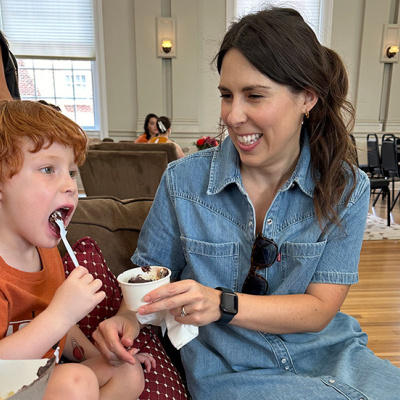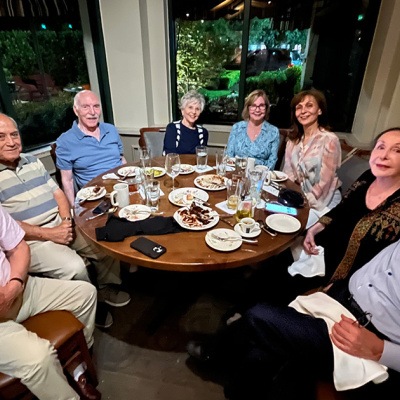Meet Linda Hicke, the New Natural Sciences Dean

One of legendary communications professor John Daly's maxims is "Never follow someone who was great at his job." But any new dean of UT's College of Natural Sciences couldn't help but do that in succeeding longtime dean Mary Ann Rankin, who led the college for 16 years before leaving to head the National Math and Science Initiative.
Fearlessly into the void steps Linda Hicke, the associate vice president for research at Northwestern University. Hicke's appointment to the deanship effective this summer was announced today.
Hicke has a tremendous job ahead of her. She'll lead one of the largest colleges at UT-Austin, with its nine departments and schools, 9,700 undergraduate and 1,800 graduate students, and 38 research units. The college has 12 Top 10-ranked programs and receives $134 million annually in grants and contracts.
Here, Hicke tells The Alcalde how she plans to build on a top performer's success.
If you had to pinpoint a childhood experience that sparked your interest in science, what would it be?
I can’t remember a time when I wasn’t interested in science. There was no aha moment—it was kind of ingrained.
How do you replicate that feeling of falling in love with science for college students—or can you?
One great thing I think UT has and we started doing similarly at Northwestern is the Freshman Research Initiative. In my experience, it was the undergrads who did research as freshmen or sophomores who got bitten by the science bug. Spending years integrating into the social network of their lab—and experiencing creating knowledge on their own—had a tremendous effect on the students.
What achievement are you most proud of at Northwestern?
I’m the founding director of a brand-new program that tries to do three things. The first is a summer bridge program for students who come in from slightly less prepared backgrounds to help get them ready for that first year. The second is a freshman undergraduate research initiative to get students in the laboratory right when they come in. The third is to fundamentally revamp the way we teach undergraduate biology courses so they’re much more interactive.
What appealed to you about UT, beyond the fabulous leadership opportunity?
The breadth of science that’s going on in the College of Natural Sciences. To have faculty of that size focused on everything from integrative biology to marine science to astronomy. The people I met there have tremendous vision for moving that science forward into the 21st century.
Describe your vision for the College of Natural Sciences.
A major role of the dean is to do everything possible to create and maintain support for extraordinary faculty so they can really thrive and not be limited by anything other than their own creativity. Right now there are opportunities for the departments to work with departments in other schools across the university. The potential for cross-fertilization there is fantastic.
The College of Natural Sciences has been a national leader with programs like UTeach and the Freshman Research Initiative. How do you build on all that?
I think there’s a lot of emphasis from funding agencies for universities who are doing cutting-edge innovation to get out there and communicate what they are doing to other universities.Getting out there what works and what’s been successful at UT is going to be great for UT’s reputation as a leader.
Where is there room for growth?
I think we want to make sure that the departments that are already top-ranked are growing in terms of recruiting young faculty who are going to be leaders of the next generation.
With the possibility of opening a medical school and teaching hospital in Austin, that would be an enormous opportunity for some of the basic science being done at UT to be translated for societal benefit. The dean of the College of Natural Sciences and the dean of the new medical school would be a key partnership. The synergy between those units could drive success tremendously. Getting that working relationship right is fundamental.
When do you arrive, and what is your first order of business?
I’m officially starting July 15. My first order of business is to learn as much as possible from the faculty, staff, and students who are there.
Read more about Hicke's appointment and what University leaders have to say about it here.
Photo courtesy the College of Natural Sciences






